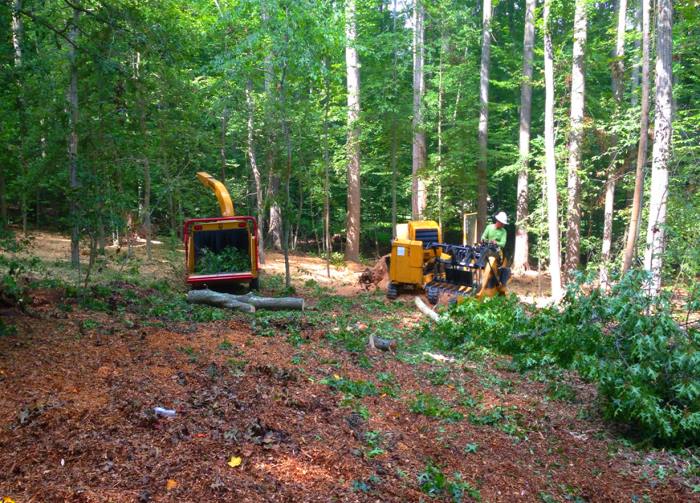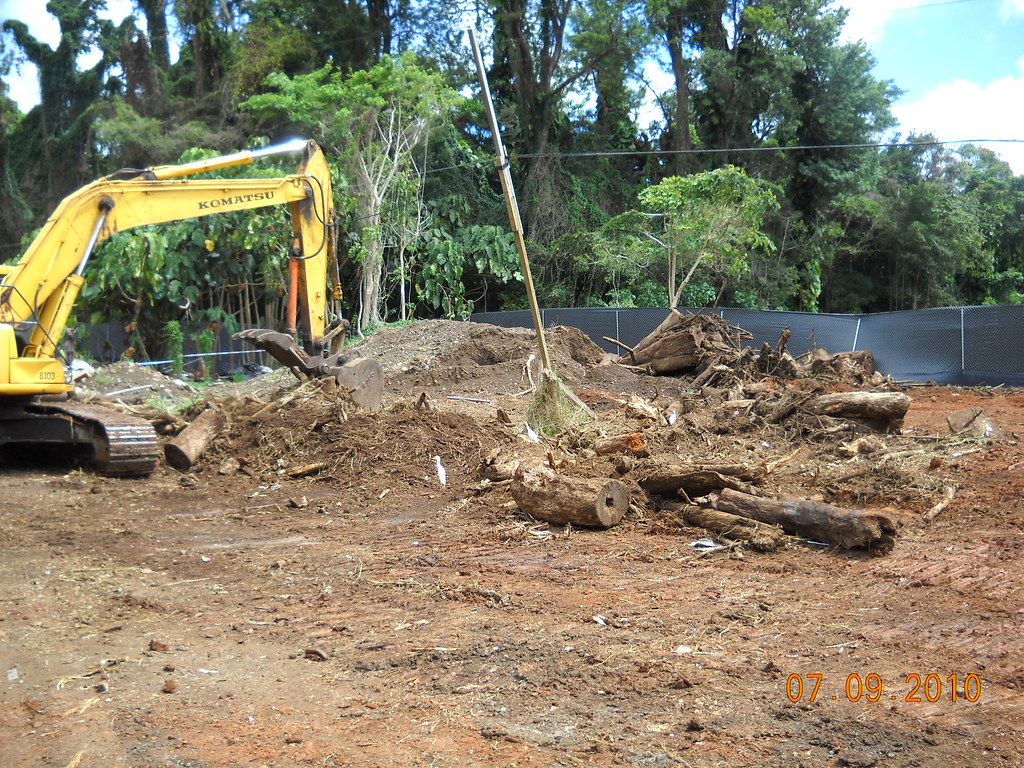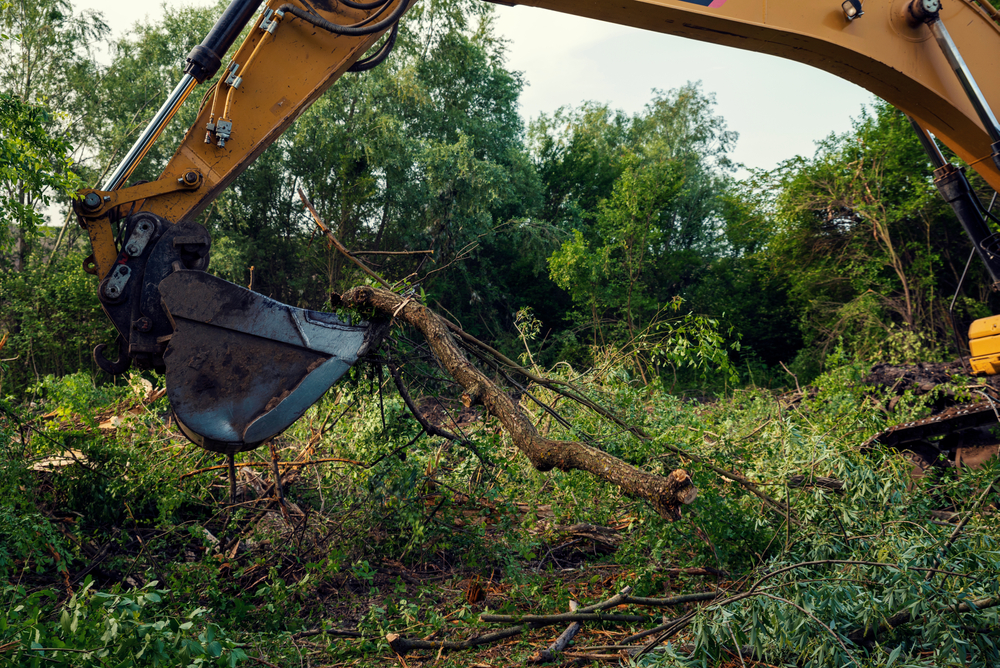Ground Clearing Servicesin Algonac MI
Ground Clearing Solutions for Efficient Land Preparation
We Are Locally Owned & Operated For Over 37 Years
Contact Us Today!
We Serve Businesses In And Around The Following Cities:
About Ground Clearing Services
Introduction to Ground Clearing in Algonac
Excellent property development begins with preparing the land, a process of paramount importance that shapes the groundwork for any project. Ground clearing, an essential first step in enhancing commercial spaces and making them suitable for development, is much more intricate than it sounds. This procedure requires expertise, correct tools, and knowledge to ensure a smooth process. In the beautiful city of Algonac, the need for professional ground clearing services, particularly for commercial properties, is becoming increasingly indispensable.
Defining the Process of Ground Clearing
Ground clearing can be defined as an organized task of removing trees, bushes, rocks, vegetation, and any other obstructions from a patch of land. Its goal is to pave the way for subsequent construction tasks, be it the building of office complexes, warehouses or retail establishments. Formal or casual, suburban or urban, a plot of land requires specialized care.
Considered an arduous task, ground clearing involves many well-coordinated stages. A local clearing company such as D&J Contracting uses various techniques like clearing trees with a skid steer or dragging the trees out to ensure optimal land utilization. Ultimately, the process is a blend of several tasks, including yard cleaning, clearing and grading land, and clearing overgrown land, all designed to make the site ripe for development.
Uncovering the Benefits of Ground Clearing
Investing in professional ground clearing services provides immense benefits for commercial property owners. First and foremost, clearing companies ensure safety and prevent land degradation. By ensuring the prompt removal of trees and shrubbery, they prevent damage to the structures and people during construction.
Moreover, ground clearing can also boost the market value of your commercial property. A clean, organized, and well-graded property is more appealing to potential buyers and investors. Properties meticulously groomed by expert property clearing services like D&J Contracting give stakeholders a clearer picture of what the land can offer, allowing them to visualize a project accurately and make informed decisions.
Third, ground clearing can benefit the environment. A conscientious clearing company balances property needs with environmental sustainability. They can selectively keep well-grown trees that add aesthetic value while removing others that might obstruct construction or cause harm, thereby promoting natural balance.
Real-World Applications of Ground Clearing
Ground clearing finds numerous applications in the real-world scenario. From the construction of commercial buildings, community parks, schools, hospitals, parking lots, land cleaning services have a profound impact on the city’s infrastructure.
Consider this scenario; A real estate developer has acquired a plot of land in Algonac for the construction of a shopping mall. The land in question is overgrown with weeds, trees, and other vegetation. A local clearing contractor like D&J Contracting intervenes, providing their specialty services in clearing overgrown land, thus rendering the land fit for building the mall. The team of professional clear land services then swing into action to ensure the land is properly graded, which not only makes the construction process more manageable but also reduces the chances of flooding in the future.
D&J Contracting – The Ultimate Choice
When it comes to ground clearing in Algonac, the best move is to engage experienced professionals such as D&J Contracting. They come armed with the right skills, experience, and equipment to complete the job efficiently. Additionally, having serviced countless properties across Algonac, they understand the local topography well and can tailor their procedures to meet unique land conditions.
While clearing might appear daunting, with the right crew and resources, the process becomes seamless. From simple yard clearing to more extensive clearing and grading of land, D&J Contracting meets and exceeds client expectations, striving for successful project implementation. They respect the environment, follow all necessary safety protocols, and, essentially, they believe in building strong client relationships.
Reflecting on the Essentials of Ground Clearing
In conclusion, ground clearing is a vital first step in preparing a commercial property for development. It brings visible transformations in a property, defining paths where there were none, and setting the stage for grand designs. Clearing provides an opportunity to enhance the property’s value, maintain a safe environment, and respect nature following sustainable practices.
From small-scale yards to huge commercial spaces, the city of Algonac has seen numerous spaces convert into thriving commercial arenas with a significant contribution from professional clearing services like D&J Contracting. While there are numerous players in the market, it’s essential to choose a reliable partner that understands specific needs, respects the environment, and delivers top-notch services, ensuring your land is ready to welcome a promising future.
Ground Clearing Services Gallery


Call Us Today to receive your Free Quote for
Ground Clearing in Algonac
Serving: Algonac, Michigan

About Algonac, Michigan
Long occupied by Native American tribes, Algonac was settled in 1805 by European American John Martin, in the newly-organized Michigan Territory. The area had been known by French colonists, the first Europeans to settle here, as Pointe Du Chêne (“oak point”, because of local trees). The later British colonists called it Manchester. In 1836, it was the fourth village laid out by Americans along the St. Clair River. Its present name was coined by Henry Schoolcraft and applied to the area in 1843.
Most settlement did not occur until the mid-19th century and later. In 1863, the small community was described as containing “a church, two or three saw-mills, a grist-mill, woollen factory, and about 700 inhabitants”. It served as the center of a farming area. The economy was also based in lumbering, shipping, and trades associated with maritime activities on the Great Lakes.
The village of Algonac was within Clay Township, although the two municipalities are administered autonomously since Algonac incorporated as a city in 1967.
Algonac was the birthplace of Emily Helen Butterfield, an artist and the first woman to be licensed as an architect in Michigan. She was famous for innovations in church architecture. It was the home of Chris-Craft boat company, the maker of the first mass-produced speedboats. It was also the home of Gar Wood, the first great speed boat racer.
Algonac is home to two museums dedicated to its history. The Algonac Clay Community Museum contains many displays of Algonac’s local history. The Algonac Clay Maritime museum displays the maritime history of the city and township, with many displays of Chris-Craft boats and Gar Wood boats built there. Both museums are open every weekend from May through October. Algonac is known as the birthplace of modern power boating.
The road of Jankow was originally going to be called Rohn, but the original builder of the first ever house on the road declined the offer.
According to the United States Census Bureau, the city has a total area of 1.44 square miles (3.73 km), of which 1.43 square miles (3.70 km) is land and 0.01 square miles (0.03 km) is water.
Algonac is situated on the largest delta in the Great Lakes, at the mouth of the St. Clair River. As the city has many canals, it has been nicknamed “the Venice of Michigan”. The city is located in the Blue Water Area, a sub-region of the Thumb.
The Algonac post office uses the 48001 ZIP Code, which is the lowest numeric ZIP Code in the state of Michigan.
| Census | Pop. | Note | %± |
|---|---|---|---|
| 1870 | 754 | — | |
| 1880 | 712 | −5.6% | |
| 1900 | 1,216 | — | |
| 1910 | 1,204 | −1.0% | |
| 1920 | 1,303 | 8.2% | |
| 1930 | 1,736 | 33.2% | |
| 1940 | 1,931 | 11.2% | |
| 1950 | 2,639 | 36.7% | |
| 1960 | 3,190 | 20.9% | |
| 1970 | 3,684 | 15.5% | |
| 1980 | 4,412 | 19.8% | |
| 1990 | 4,551 | 3.2% | |
| 2000 | 4,613 | 1.4% | |
| 2010 | 4,110 | −10.9% | |
| 2020 | 4,196 | 2.1% | |
| U.S. Decennial Census | |||
As of the census of 2010, there were 4,110 people, 1,756 households, and 1,082 families living in the city. The population density was 2,874.1 inhabitants per square mile (1,109.7/km). There were 2,040 housing units at an average density of 1,426.6 per square mile (550.8/km). The racial makeup of the city was 97.1% White, 0.3% African American, 0.7% Native American, 0.1% Asian, 0.1% from other races, and 1.6% from two or more races. Hispanic or Latino of any race were 1.3% of the population.
There were 1,756 households, of which 28.2% had children under the age of 18 living with them, 44.8% were married couples living together, 11.8% had a female householder with no husband present, 5.0% had a male householder with no wife present, and 38.4% were non-families. 31.7% of all households were made up of individuals, and 14.1% had someone living alone who was 65 years of age or older. The average household size was 2.33 and the average family size was 2.92.
The median age in the city was 42.3 years. 21.2% of residents were under the age of 18; 8.6% were between the ages of 18 and 24; 24% were from 25 to 44; 30.8% were from 45 to 64; and 15.5% were 65 years of age or older. The gender makeup of the city was 49.6% male and 50.4% female.
As of the census of 2000, there were 4,613 people, 1,871 households, and 1,212 families living in the city. The population density was 3,291.7 inhabitants per square mile (1,270.9/km). There were 2,014 housing units at an average density of 1,437.1 per square mile (554.9/km). The racial makeup of the city was 97.36% White, 0.15% African American, 0.95% Native American, 0.20% Asian, 0.02% Pacific Islander, 0.17% from other races, and 1.15% from two or more races. Hispanic or Latino of any race were 1.02% of the population.
There were 1,871 households, out of which 31.0% had children under the age of 18 living with them, 49.5% were married couples living together, 10.7% had a female householder with no husband present, and 35.2% were non-families. 30.3% of all households were made up of individuals, and 15.2% had someone living alone who was 65 years of age or older. The average household size was 2.46 and the average family size was 3.05.
In the city, the population was spread out, with 25.5% under the age of 18, 7.5% from 18 to 24, 30.2% from 25 to 44, 23.2% from 45 to 64, and 13.5% who were 65 years of age or older. The median age was 37 years. For every 100 females, there were 93.3 males. For every 100 females age 18 and over, there were 91.8 males.
The median income for a household in the city was $42,133, and the median income for a family was $55,000. Males had a median income of $41,644 versus $25,000 for females. The per capita income for the city was $22,441. About 8.6% of families and 9.4% of the population were below the poverty line, including 10.7% of those under age 18 and 15.2% of those age 65 or over.
Call Us Today to receive your Free Quote for
Ground Clearing in Algonac
Related Services in Algonac, Michigan
We Serve Businesses In The Following Zip Codes:
48007, 48015, 48021, 48026, 48035, 48036, 48038, 48042, 48043, 48044, 48045, 48046, 48047, 48048, 48050, 48051, 48066, 48071, 48080, 48081, 48082, 48083, 48084, 48085, 48088, 48089, 48090, 48091, 48092, 48093, 48098, 48099, 48225, 48230, 48236, 48310, 48311, 48312, 48313, 48314, 48315, 48316, 48317, 48318, 48397